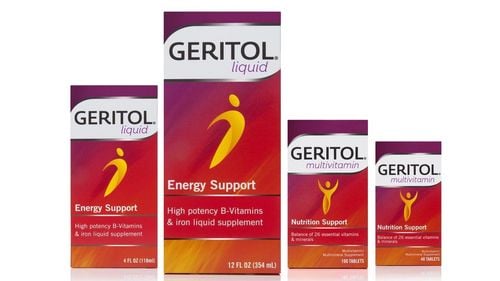This is an automatically translated article.
Malnutrition is a dangerous condition that can increase the risk of illness in children, especially young children, even causing death. Not only that, malnutrition also makes children not develop comprehensively both physically and intellectually, affecting their future life. So what kind of diet should a malnourished child have to help improve this situation?
1. What foods should be chosen for malnourished children?
In order to end the situation of malnourished children or children at risk of malnutrition, and at the same time help children develop more comprehensively, parents need to fully supplement the necessary nutrients for children as possible by use natural foods or other food sources.
1.1. Necessary groups of nutrients should be added to malnourished children in their daily diets
Fat: Fat provides the child's body with essential energy to use for the body's activities throughout the day, and at the same time creates a layer of fat to keep the body warm. Fatty acids found in foods not only help prevent blood clotting, but also stimulate brain activity in children. In addition, fat also enhances the absorption of fat-soluble vitamins into the body and helps in wound healing.
Protein: Protein is classified as an important nutrient component in the formation of body structure. Moreover, this compound also helps to replace damaged cells, preventing malnutrition in children quite effectively. Protein makes up the structure of muscles, blood, lymph, hormones, antibodies, enzymes, endocrine glands and excretory glands of the body. Thanks to the nutritional composition of protein, it will help the body have better resistance, be provided with energy for the body's activities better. In addition, protein is also involved in the metabolism of vitamins and other nutrients.
Calcium: Calcium mineral helps children develop both in height and skeletal system in the whole body. In addition, calcium is also involved in the maintenance as well as the operation of the muscles and nervous system of the body. Not only that, calcium supports both hair and nail growth. For malnourished children, especially stunted children, it is often necessary to supplement with this type of nutrient, because it can help children function more flexibly, quickly, grow taller and smarter.
Vitamin A: Vitamin A works to strengthen the body's resistance as well as the child's immune system to help them get sick less often and be able to resist risk factors from surrounding environmental conditions. Vitamin A deficiency also makes children more susceptible to infections, increasing the risk of malnutrition in children.
Vitamin D: Vitamin D helps support the transport of calcium into the blood throughout the body. When the body lacks vitamin D, it will affect the process of bone formation, at the same time limit the absorption of calcium and phosphorus in the intestine, causing micronutrient deficiency and increasing the risk of malnutrition in children. Vitamin C: Vitamin C plays a role in helping to strengthen the immune system for a healthy child, and at the same time, this compound also helps to strengthen collagen for the child's skin to be firmer and more elastic. In addition, vitamin C also participates in the process of nerve conduction, and at the same time enhances the absorption of folic acid, iron and calcium into the body, effectively improving the symptoms of malnutrition.
Zinc: Participates in the process of blood formation to help children look rosy and healthier. By providing enough zinc for the child's body, it helps children to strengthen their resistance, develop intellectually, and at the same time limit infections and stimulate children's appetite and appetite.

Sữa và các chế phẩm từ sữa là thức ăn cho trẻ suy dinh dưỡng được khuyên dùng
1.2. Food should be used for malnourished children
Milk and dairy products Milk and products made from milk include: cheese, yogurt, ... rich in calcium and fat, used as food for malnourished children. When children use these foods, they will help their bodies be healthier, and at the same time develop their height and the size of their brains to function effectively.
Rice or white rice Rice or white rice has a high starch content, which helps provide energy for children to function throughout the day. In addition, rice also contains many other nutrients including: protein, vitamin B1, thiamin, vitamin K and iron. These nutrients are all very important and necessary for the overall development of children physically and mentally. For malnourished children, rice should be added to their daily meals. If children are lazy to eat or do not want to eat rice, parents can use rice to cook porridge for children to eat.
Potatoes Potatoes belong to the group of potato foods and have a rich nutritional content including glucose, fiber, vitamin C, vitamin B6, folic acid... Using potatoes in food processing for children helps children improve resistance, limit the ability as well as the risk of infectious diseases, infections while enhancing the absorption of nutrients into the body more effectively. In addition, potatoes are also classified as a food group that can process many nutritious dishes to help treat and prevent malnutrition.
Meat Meat belongs to the group of foods that are chosen quite commonly in daily meals. Because the nutritional content of meat is quite high. As for pork, the nutritional composition contains quite a lot of vitamin A and vitamin E, both of which have the effect of strengthening the immune system and resistance for children. The nutrients in pork are also essential for the growth and repair of muscles and nerve tissues. Moreover, the nutrients in pork also participate effectively in the body's hematopoietic process.
As for beef, with its rich nutritional content, especially iron, it helps to nourish people who have just woken up, or people with weak health or malnourished children. This food also helps improve resistance, build the immune system for the body to work effectively to help children limit infections. The iron content in beef also helps to create blood and red blood cells effectively. In addition, nutrients such as zinc, magnesium, protein, calcium... help restore health quite quickly.
Seafood Shrimp, crab, fish, belong to the group of calcium-rich foods to help children grow taller quickly and effectively. Using these foods regularly helps children grow taller, flexible muscles, strong teeth, hair and body components.
Eggs In an egg contains high levels of protein and healthy fats. Every week, parents should feed their children from 3 to 5 through eggs to help children grow taller and stimulate brain development.
Nuts Nuts, in addition to providing starch to supplement energy for the body, also contain high fiber content to help good digestion. Besides, it also contains many essential nutrients for children such as protein, calcium, iron... necessary for children.
Green vegetables The content of vitamins and fiber in vegetables is very good for the body of children, especially dark green leafy vegetables. In addition, there are some vegetables that have high nutritional value such as broccoli, spinach...

Rau xanh là thức ăn cho trẻ suy dinh dưỡng được khuyên dùng
2. Some basic principles for implementing a diet for malnourished children
Parents should add protein nutritional ingredients to help children absorb other nutrients most effectively and optimally. children are more delicious, fatter, help stimulate appetite in children. Parents should not force or pressure children when they eat, making them afraid to eat. Parents should make a balanced and reasonable diet to help children develop comprehensively and can supplement children with micronutrients from other food sources. The improvement of malnutrition in children can take place for a long time, so it is recommended that parents be calm and persistent when supplementing nutrients for children, even through eating or functional foods. In particular, the use of functional foods should choose those of natural origin that are easily absorbed, do not allow children to use many types at the same time or continuously change the types of functional foods.
For children to be healthy and develop well, it is necessary to have a nutritious diet in terms of quantity and quality balance. If children are not provided with adequate and balanced nutrients, it will lead to diseases of excess or lack of nutrients, which adversely affect the comprehensive development of children in terms of physical, mental and motor skills.
Children who do not eat properly are at risk of micro-mineral deficiency causing anorexia, growth retardation, malabsorption,... If they notice the above signs, parents should supplement their children with products. The supplement contains lysine, essential micro-minerals and vitamins such as zinc, chromium, selenium, and B vitamins to help fully meet the nutritional needs of children. At the same time, these essential vitamins also support digestion, enhance nutrient absorption, help improve anorexia, and help children eat well.
Parents can learn more:
Signs of zinc deficiency in children
Micronutrient deficiency and failure to gain weight in children
For more nutritional knowledge and child care for each age, parents please regularly visit the website vimec.com and make appointments with the leading doctors, pediatric specialists - nutritionists of Vinmec International General Hospital when needing advice on children's health.













